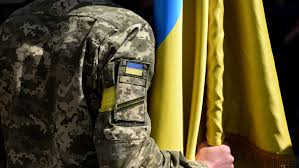Exhumation and reburial of a dead Ukrainian serviceman: legal aspects
Ukraine, like many other countries, is often faced with the need to exhume the bodies of dead military personnel and civilians due to various circumstances, such as war, acts of terrorism or natural disasters. However, the issue of reburying the body of the deceased before obtaining the results of additional DNA examination remains controversial and requires careful consideration from a legal point of view.
The current legislation of Ukraine does not contain a specific ban on exhuming the body for reburial until the results of the DNA examination are obtained. However, at the same time, it is worth taking into account the explanation provided by the human rights commissioner of the Verkhovna Rada of Ukraine, which states that the molecular genetic examination is carried out only by the decision of the investigator. Thus, reburial of the deceased's body may not be possible until the appropriate examination is carried out.
Main Part
According to the current legislation, reburial of the remains of the deceased is allowed in exceptional cases by decision of the executive body of the village, settlement, city council. At the same time, it is necessary to have the permission of the executive body to bury the remains in another cemetery. However, the legislation does not regulate the possibility of reburial before obtaining the results of an additional DNA examination.You may be interested in the following articles: lawyer's consultation, lawyer's consultation, document analysis, legal situation analysis, written consultation, document review by a lawyer, lawyers' documents, lawyer's help online, lawyer online, legal opinion, lawyer's legal opinion, lawyer online.
Ukraine, being in a difficult political situation and facing threats to the security of its citizens, actively conducts military operations on its territory. In this connection, numerous servicemen and civilians died or went missing. Identification of their bodies and their reburial require special attention and compliance with certain procedures.
The controversial issue regarding the possibility of reburying the body of a dead Ukrainian serviceman before obtaining the results of a DNA examination requires careful consideration and clarification by the relevant authorities. According to the human rights commissioner of the Verkhovna Rada of Ukraine, molecular genetic examination is carried out only by the decision of the investigator, which delays the possibility of reburial until the relevant results are obtained.
The legislation on reburial of the remains of the dead provides for exceptional cases when it is allowed by the decision of the executive body of the local council. However, the issue of the possibility of reburial before the completion of the DNA examination has not been settled. This can create certain difficulties and problems for the relatives of the victims, as well as for the military authorities.One of the possible ways to solve this issue may be the adoption of special legislative acts or orders of the relevant authorities, which would regulate in detail the conditions and procedures for reburying the bodies of the dead in cases where the results of the DNA examination have not yet been established. This could regulate the legal framework and ensure at the same time both respect for the memory of the dead and the importance of carrying out an examination for the identification of persons.
Conclusion
In general, the situation regarding the reburial of fallen military personnel in the absence of DNA examination results is complex and requires careful study and consideration by the relevant bodies and legislative authorities. Solving this issue requires a comprehensive approach and consideration of all aspects related to the rights and interests of the relatives of the deceased, the military authorities and the relevant legislative norms.
Therefore, the issue of reburying the dead Ukrainian serviceman in another settlement until the results of the additional DNA examination are received remains open. Considering the complexity of the situation and the need for the complete preservation of evidence for further investigation and identification of the deceased, it is important that the resolution of this issue is based on a legal basis and measures that ensure the rights and interests of all parties, including the relatives of the deceased and the military authorities.





























